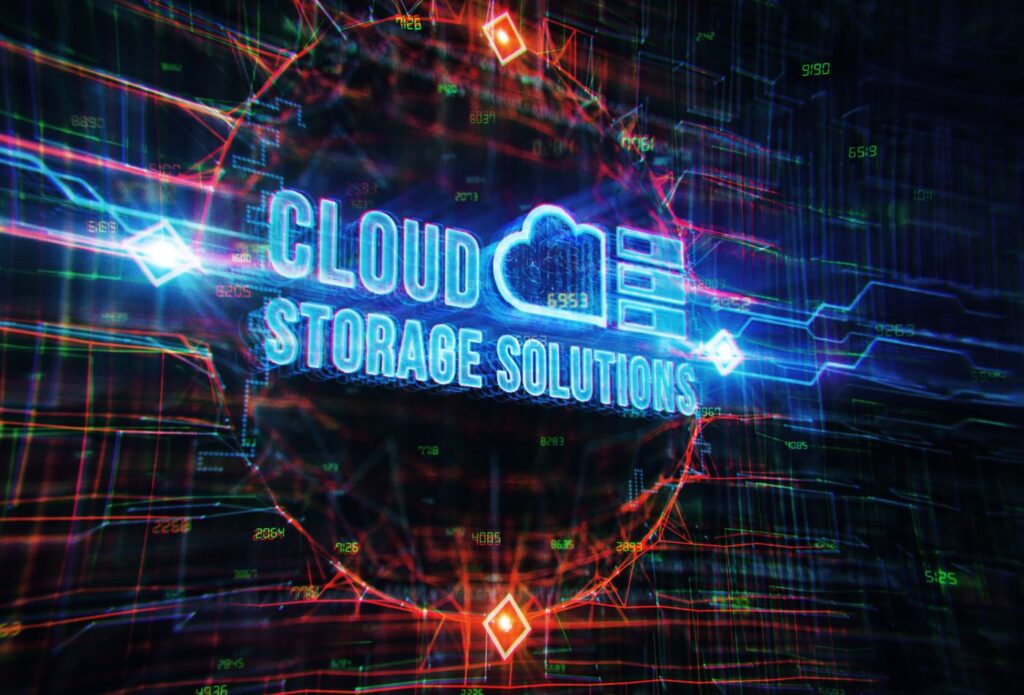Introduction
In today’s digital age, data storage is more important than ever. With the rise of cloud computing, companies and individuals rely heavily on cloud storage providers to keep their files secure and accessible. However, centralized storage solutions like Google Drive, Dropbox, and OneDrive come with risks, including security vulnerabilities, data breaches, and lack of user control. This is where decentralized storage comes in.
Decentralized storage is a revolutionary approach that aims to solve these issues by distributing data across multiple nodes instead of relying on a single entity. In this article, we’ll explore what decentralized storage is, how it works, and why it’s an essential part of the future of data security.
What Is Decentralized Storage?
Decentralized storage is a data storage system that distributes information across multiple computers or nodes rather than storing it on a central server. This approach leverages blockchain technology, peer-to-peer (P2P) networks, and cryptographic encryption to provide enhanced security, privacy, and reliability.
Unlike traditional cloud storage providers, which control and manage user data from a single point, decentralized storage eliminates the need for intermediaries. Instead, data is split into encrypted fragments, stored across a distributed network, and only retrievable by the user with the correct decryption keys.
Popular decentralized storage networks include Storj, Filecoin, Arweave, and CacheBox.io—each offering unique features tailored to different use cases.
How Does Decentralized Storage Work?
Decentralized storage relies on several key technologies to ensure data security, redundancy, and accessibility. Let’s break down the core components:
1. Data Fragmentation & Encryption
When a user uploads a file to a decentralized storage network, the file is first encrypted to ensure privacy. Then, it is broken into multiple small fragments called shards. These shards are then distributed across different nodes in the network.
Even if an attacker were to access one of these shards, they wouldn’t be able to reconstruct the full file without the encryption keys, which are controlled by the user.
2. Distributed Storage & Redundancy
The encrypted file shards are then stored across multiple locations or nodes in the network. This ensures redundancy, meaning even if a node goes offline, the data remains accessible from other nodes. Unlike centralized cloud services that may experience outages or server failures, decentralized storage networks are inherently more resilient.
3. Retrieval & Reassembly
When a user wants to retrieve their data, the network reassembles the file by collecting the necessary shards and decrypting them. Advanced algorithms ensure that the file is reconstructed quickly and securely.
4. Incentive Mechanisms
Most decentralized storage networks use blockchain technology to incentivize participation. Users who contribute unused storage space (called storage providers or miners) receive rewards in the form of cryptocurrency tokens. This creates a self-sustaining ecosystem where participants are motivated to maintain the network’s integrity.
5. Smart Contracts & Verification
Many decentralized storage platforms use smart contracts to automate storage agreements. These contracts ensure that storage providers maintain availability and reliability. Cryptographic proofs such as Proof-of-Replication (PoRep) and Proof-of-Retrievability (PoR) are used to verify that data remains intact and accessible.
Benefits of Decentralized Storage
Decentralized storage offers several advantages over traditional cloud storage solutions. Here are some key benefits:
1. Enhanced Security & Privacy
Because files are encrypted and fragmented across multiple nodes, unauthorized access is nearly impossible. No single entity has control over your data, reducing the risk of breaches and data leaks.
2. Data Ownership & Control
In centralized storage systems, users often relinquish control of their data to service providers. With decentralized storage, users retain full ownership and control over their files, including encryption keys.
3. Greater Resilience & Reliability
Decentralized networks are less susceptible to downtime since data is stored redundantly across multiple nodes. Even if some nodes go offline, the file remains accessible.
4. Cost Efficiency
By leveraging unused storage space from participants, decentralized storage platforms can offer competitive pricing compared to traditional cloud services. Users only pay for the actual storage they use, and contributors are incentivized to provide storage at lower costs.
5. Censorship Resistance
Because there is no central authority controlling the network, decentralized storage is less prone to censorship. This makes it an ideal solution for journalists, activists, and individuals in regions with restricted internet access.
Use Cases of Decentralized Storage
Decentralized storage has a wide range of applications across different industries:
- Personal Cloud Storage: Users can securely store personal documents, photos, and videos without worrying about third-party access.
- Enterprise Solutions: Businesses can store sensitive customer data, contracts, and intellectual property with greater security.
- Web3 & Blockchain Applications: Many Web3 applications rely on decentralized storage to store NFTs, smart contracts, and dApp data.
- AI & Big Data: AI companies can utilize decentralized storage for secure and scalable data storage solutions.
- Content Preservation: Organizations like the Internet Archive can use decentralized storage to preserve digital content for future generations.
Challenges of Decentralized Storage
While decentralized storage offers numerous benefits, there are still some challenges to address:
- Adoption & Awareness: Many users and businesses are unfamiliar with decentralized storage and its advantages.
- Performance & Latency: Retrieving data from a decentralized network can sometimes be slower than centralized cloud providers.
- User Experience: Many platforms still require technical knowledge to set up and use effectively.
- Regulatory Concerns: Governments and regulators are still figuring out how to address decentralized storage in terms of compliance and data protection laws.
CacheBox.io: A Leading Solution in Decentralized Storage
CacheBox.io is a decentralized storage platform that combines the best aspects of security, affordability, and ease of use. Built on cutting-edge Web3 technology, CacheBox.io offers:
- Military-grade encryption to protect user data.
- Distributed storage across multiple nodes for redundancy and reliability.
- Affordable and scalable pricing models to suit individuals and businesses.
- User-friendly interface to make decentralized storage accessible to everyone.
Whether you’re an individual looking for a secure place to store your files or a business in need of a reliable data solution, CacheBox.io provides a powerful alternative to traditional cloud storage providers.
Conclusion
Decentralized storage is revolutionizing how we store and manage data. By leveraging blockchain technology, encryption, and peer-to-peer networks, decentralized storage provides a secure, private, and resilient alternative to traditional cloud storage solutions.
As data privacy concerns continue to grow, platforms like CacheBox.io are leading the way in making decentralized storage more accessible and practical for individuals and businesses alike.
Are you ready to take control of your data? Explore the possibilities with CacheBox.io and experience the future of cloud storage today.









